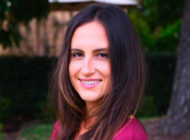CSUN students reveal their struggles with mental health issues and how the absence of help from the university has negatively affected their performance.
By HEATHER SMITH
EL NUEVO SOL
I never noticed how closed off I had become until my best friend pointed it out to me. It was then I realized my coping method: to not let anyone in lest they turn on me again. I don’t trust as easily as I used to, having traded blind innocence for depression and anxiety.
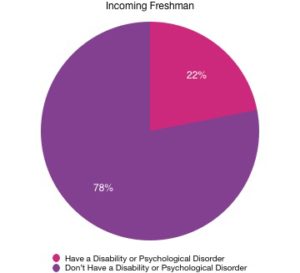 Being at CSUN has not made it any better. In fact, I didn’t know the University Counseling Services existed until I took a class about women and men in the media my second semester of junior year. Even then, the stigma around mental health issues kept me from seeking any kind of outside help.
Being at CSUN has not made it any better. In fact, I didn’t know the University Counseling Services existed until I took a class about women and men in the media my second semester of junior year. Even then, the stigma around mental health issues kept me from seeking any kind of outside help.
According to a study by NIMH, “concern of stigma is the number one reason students do not seek help.”
My sister also suffers from depression and anxiety and has told me countless times that taking pills or going to a counselor for mental illness is admitting defeat. I’m not so sure I share the same mindset, but I’ve been dealing with it alone for so many years that I would need a push to seek help.
CSUN has not provided that push. They barely talk to students about mental health awareness. While I will be graduating this semester, I urge CSUN to raise awareness for its incoming students. Mental health issues should not be stigmatized or looked down upon; they are just as, if not more, important and intrinsic to students’ wellbeing as physical health issues.
***
Farah Malla, a graduate student at CSUN, says that she has gone through a lot of change in very little time this year. It overwhelmed her to the point where she was unable to feel happiness.
“Fatigue would plague me and I found it difficult to want to have human interaction,” Malla said. She just started graduate school this semester and her family has placed pressure on her to do well.
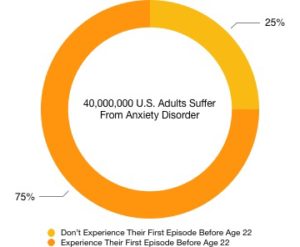 “Their needs and my needs intermingled to where theirs overpowered mine and I was susceptible to their wants and desires instead of what I wanted to improve on,” Malla said. Along with this, her closest friend found a new job and didn’t speak to her as often. This led to her feeling lonely since she thought she’d hurt someone’s feelings if she complained.
“Their needs and my needs intermingled to where theirs overpowered mine and I was susceptible to their wants and desires instead of what I wanted to improve on,” Malla said. Along with this, her closest friend found a new job and didn’t speak to her as often. This led to her feeling lonely since she thought she’d hurt someone’s feelings if she complained.
“I questioned my value and if I was good enough or skilled enough to receive any sort of praise,” Malla said. “It took me a while to understand that my feelings were valid.” All the negativity around her proved to weigh her down mentally. It wasn’t until she took the time to talk to her mother that she began to feel somewhat better.
Malla says that more advertising of the campus’ health center could be beneficial to the health and wellness of CSUN’s students. She knows of the health center’s existence and that there are counselors, but nothing more.
The UCS at CSUN has a webpage which boasts about its “many types of short-term services at no charge to currently enrolled undergraduate and graduate students only.”
If a student decides to utilize any of the options, they click on the “make an appointment” button. There is a two week wait for intake appointments, but some situations allow for immediate or same-day attention in the event of a crisis or urgent matter.
Malla said that the stress she places on herself leads to panic attacks and getting upset over the most trivial of things. To overcome it, she talks to her closest friends.
According to the Anxiety and Depression Association of America, “Anxiety disorders are one of the most common mental health problems on college campuses.” Forty million U.S. adults suffer from anxiety disorder, and 75 percent experience their first episode by the age of 22.
“I’m always told to talk to someone in the health center to get [my anxiety] off my shoulders,” Malla said. However, she does not feel comfortable enough to seek help from the UCS.
In the study conducted by the ADAA, it concluded that 85 percent of college students felt overwhelmed by everything they had to do within the last year. Almost 42 percent said that anxiety was the biggest concern among college students.
The UCS is available to most students—but the services provided are virtually unknown to most of the student body.
***
Laura Gonsoski, a liberal studies major at CSUN, has episodes of depression where the causes are unclear. Her most recent episode last for two weeks. During those two weeks, she struggled getting out of bed, going to school, sleeping, talking with people close to her, taking care of her own wellbeing, motivating herself to do homework, and found her grades dropping.
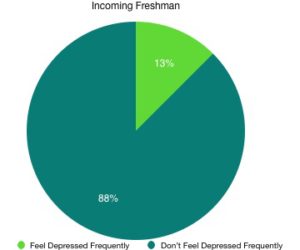 According to a study performed by the National Institute of Mental Health, or NIMH, 30 percent of college students reported feeling “so depressed that it was difficult to function.” It also suggests that Depression can affect students’ academic performance.
According to a study performed by the National Institute of Mental Health, or NIMH, 30 percent of college students reported feeling “so depressed that it was difficult to function.” It also suggests that Depression can affect students’ academic performance.
“All I wanted to do was numb myself further and watch television,” Gonsoski said. At the end of the two weeks, she got sick and felt that she needed to move forward, so she forced herself to.
“I’ve been at CSUN for a year now and since then, I have experienced anxiety issues and depression. Depression [is] the most prominent issue,” Gonsoski said.
According to a different study conducted by NIMH, students cited depression and anxiety as two of the most prevalent impediments to academic performance.
Gonsoski attended a counseling appointment at the UCS for the first time this semester. She described the atmosphere as “intimidating and unwelcoming” while the people in the waiting room with her were “quiet, kept to themselves, and felt distant.” The office workers were hidden behind glass walls which they would unlock and slide open every time they had to speak to someone. Once the conversation was over, they could close and lock the window.
“The counselor I saw was kind, but during the session, she kept going back to pieces of conversations that were unconnected to my current situation,” Gonsoski said. Every time she tried to move past a point, the counselor would make her go back to a previous topic. Before she was even able to talk about why she made the appointment in the first place, the session was over.
“[The counselor] ended the session recommending a serious of help groups, pills, and a psychiatrist that a previous counselor recommended. The visit was less than fifteen minutes,” Gonsoski said. The counselor looked at notes from a previous counselor, talked to her about what she should do, and dismissed her.
Gonsoski says the counseling did not help her. “Each visit made me feel more lost and misunderstood going out than I did coming in.” In the end, she stopped trying to get help from the UCS since it seemed “hopeless.”
To help students with mental illness, Gonsoski says the first session should be longer. “The counselors should hear the whole story first before recommending anything so the students at least feel heard and say everything they wanted to say.”
***
Another student at CSUN, who wished to remain anonymous, said that his depression made him feel as if everyone hated and didn’t want to be around him. He thought he had no one to help him and ended up feeling lost and alone.
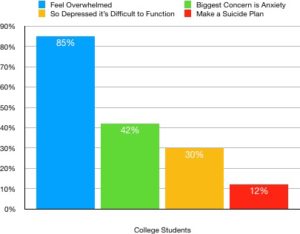 “I started feeling like I literally have no purpose but to waste air and that no one would care if I’m gone and that I should just disappear,” the student, who for the duration of this article I will call Bob, said. This feeling eventually led to multiple emotional breakdowns during which he still can’t remember what he did or thought.
“I started feeling like I literally have no purpose but to waste air and that no one would care if I’m gone and that I should just disappear,” the student, who for the duration of this article I will call Bob, said. This feeling eventually led to multiple emotional breakdowns during which he still can’t remember what he did or thought.
“For me, my signs were a perpetual, common feeling of loneliness and sadness and also suicidal thoughts,” Bob said. “Sometimes there would be days where I felt nothing at all, just an empty husk.”
According to the National Data on Campus Suicide and Depression, suicide is the second-leading cause of death among 20 to 24-year-olds and one in 12 U.S. College students make a suicide plan.
Bob never had an official diagnosis due to personal reasons. However, his doctor told Bob he thought he was suffering from depression.
“When you’re depressed you don’t just feel sad… it’s hard to describe since everyone feels things differently,” Bob said. “For me, it just kind of happens suddenly and hits hard.” He tries to bury himself in work to distract himself, but during his senior year of high school and first semester of college, his grades suffered.
According to The American Freshman annual survey from 2016, 21.9 percent of incoming freshmen identified as having at least one disability or psychological disorder. One in eight first-time freshmen said that they felt depressed “frequently” in the past year.
Bob says that CSUN has only helped since he found a good group of friends and got an internship. “Neither of those things has really helped my depression in the long run though. They’re just delaying and distracting me from my feelings.”
***
After talking to these students, I went to the UCS, sat on the ground across from the entrance, and just observed.
I imagined what it must have been like for Gonsoski when she wanted help, alone and uncomfortable staring at the locked glass windows.
I thought of the future students who would need help but wouldn’t due to the fear of the social stigma around mental health problems.
If CSUN would begin the battle of destigmatizing mental health problems, their students would be both happier and healthier. Students like Malla, Gonsoski, and Bob would not have to suffer as much as they have on a campus where faculty, staff, and students are aware of mental health problems and have a place better equipped to adhere to their mental health needs.
Tags: anxiety college students CSUN Depression Farah Malla Laura Gonsoski mental health Mental Health Awareness



















